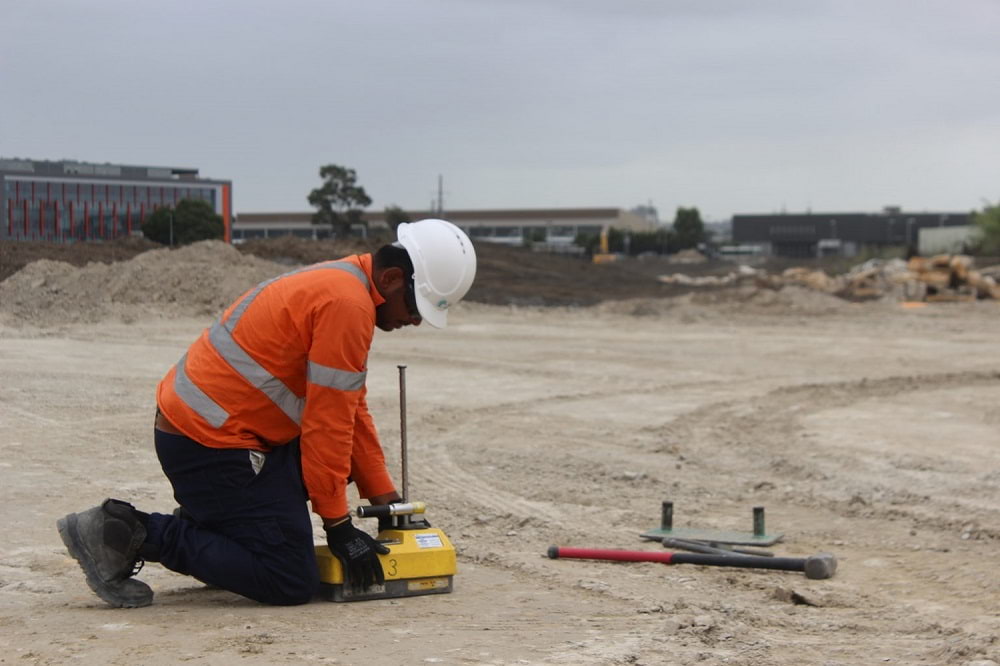DCP & CBR Testing

ADE offers two types of strength and penetration tests:
Dynamic Cone Penetration (DCP) Testing
California Bearing Ratio (CBR) Testing
Both DCP and CBR tests are conducted by qualified geotechnical engineers from ADE’s team of geotechnical and environmental specialists in Sydney, Melbourne and Queensland.
In general, DCP testing takes one day for fieldwork and one day for reporting. In contrast, CBR takes an average of 10 working days including fieldwork, analysis and reporting.
Dynamic Cone Penetration Testing |
|---|
DCP testing is used to determine the strength of the subsurface and design load of the soil. The engineers perform the testing in-situ to give an estimation of the load bearing capacity which a soil can withstand, by measuring the extent of penetration into the ground of a calibrated tip or cone. Stiffer soils will yield a lower penetration rate while softer soils will result in increased penetration. |
Once the maximum design load of a soil is known, these results can be used to calculate appropriate footings and foundations for sub/superstructures to be placed on or within the soil. |
All DCP tests are performed by ADE’s team of geotechnical engineers and comply with AS1289.6.3.2 and AS1289.6.3.3. |
Californian Bearing Ratio Testing |
|---|
CBR testing is conducted to determine the strength of a material (usually a subgrade) when it is at its maximum compaction. This purpose of this is to determine the required thickness of a structural layer or asphaltic layer (e.g. a footpath) to be placed on top of the tested material. This test ensures that the strength requirements outlined by the scope of works are satisfied. |
To perform this test, a maximum dry density is required to be undertaken on the material prior to testing to determine the remoulded density of the sample. The specimen is commonly remoulded at 100% of standard compaction (or the relative compaction achieved onsite) to determine the strength of the material. This test will require the time taken for a maximum dry density to be undertaken, and then a four day soak to determine the reactivity of the soil prior to testing. |
This value is given as a percentage as compared to a standardised material (California Limestone) where a low value corresponds to weak fill and a high value to strong filling. |
ADE’s team of geotechnical engineers carry out all Californian Bearing Ratio testing according to AS1289.6.1.1 or RMS T117. |


